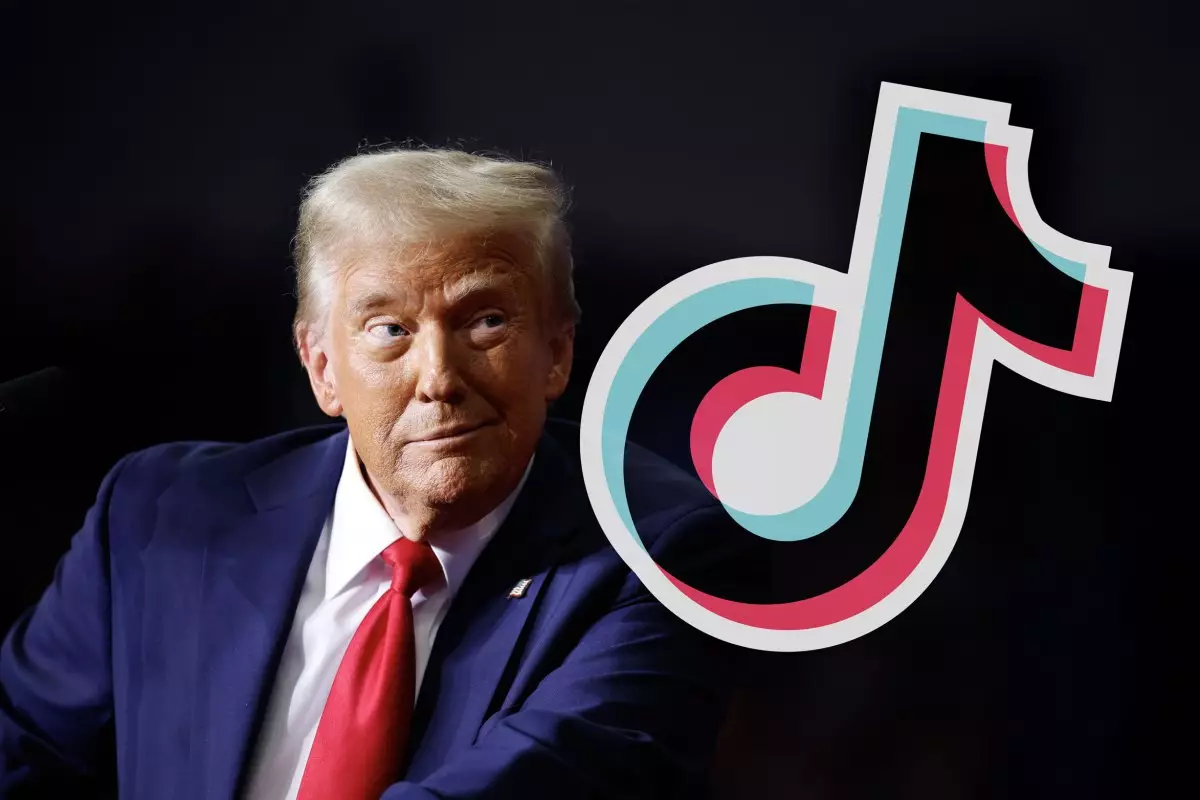The saga surrounding TikTok has taken yet another turn, and it’s one filled not just with intrigue, but with the unmistakable mark of political maneuvering. President Donald Trump, leveraging the power of executive orders, has once again extended the deadline for a proposed ban on TikTok, pushing it back by 75 days. This decision has not just sparked debates among tech enthusiasts but has reignited discussions on the broader implications of global trade, security, and digital sovereignty. As we peel back the layers of this development, it becomes clear that this isn’t merely about a social media platform—it’s about a complex web of geopolitical strategy.
A Deal in Limbo: The Quest for Approval
In a post on Truth Social, Trump declared his administration had made “tremendous progress” in negotiating a deal to keep TikTok operational in America. However, this optimism comes with caveats. The president acknowledges that despite advancements, essential approvals from various stakeholders remain outstanding. The original impetus for this administrative push stems from concerns about data privacy and national security—issues that have fueled rumors and conspiracies surrounding the app’s Chinese ownership.
It’s significant to note that the deadline extension marks the second such maneuver by Trump, creating a narrative of uncertainty. The original deadline, set forth by former President Joe Biden, placed the onus on ByteDance, TikTok’s parent company, to sell its U.S. operations by January 19. The intricacies of this situation stem not just from domestic politics but from international relations, particularly with the Chinese government, which continues to cast a shadow over the potential sale.
The Players and the Stakes
Amidst this backdrop, various heavyweights in the U.S. corporate landscape are circling TikTok like hawks. The likes of Oracle, Walmart, and even tech investors such as Andreessen Horowitz are eyeing the opportunity to gain control over the platform. However, the success of any deal hinges on approval from Beijing—a complicating factor that adds layers of difficulty to an already tumultuous situation. The Chinese government has made it clear that it would not take kindly to forced divestitures, and this stance puts American negotiators in a precarious position.
As the negotiations unfold, it becomes crucial to assess the implications of these corporate ballet moves. On one hand, Trump’s willingness to postpone a ban reflects a pivot towards collaboration rather than confrontation, suggesting that he sees potential for a mutually beneficial agreement. On the other hand, the ever-present specter of economic tariffs complicates matters significantly. Trump’s recent imposition of a 34% tariff on imports from China has further strained relations, making any diplomatic overtures feel tentative and fraught with tension.
The Economic Tug of War
The tension between the United States and China is more than a mere backdrop to the TikTok debacle; it is the central narrative that drives the dialogue. Trump’s assertion that tariffs are “the most powerful economic tool” underscores his administration’s stance on maintaining leverage in its dealings with China. However, for every measure taken, there seems to be a retaliatory response brewing from Beijing, evidenced by its recent announcement of a corresponding tariff on U.S. goods.
Amid this war of economic attrition, many are left questioning the broader implications for American businesses. How will U.S. companies navigate this complex terrain of tariffs and negotiations involving high-profile digital platforms? The repercussions could set a lasting precedent for how technology companies are treated in the crosshairs of international political disputes.
Future Considerations: The Next Act
As we watch this spectacle unfold, one is left to ponder what future holds for TikTok, the urged negotiations, and the broader discourse it evokes about digital privacy and national sovereignty. Will the extension of the deadline serve as a bridge toward a resolution? Or will it further entrench the divisions between the U.S. and China, reaffirming the notion that the digital realm is one of the battlegrounds of modern geopolitics?
The stakes are high: for TikTok, for its users, and for the nations involved. In the blink of an eye, a simple app has become a focal point of international trade discussions, illustrating just how intertwined technology and politics have become in the current age. In this uncertain landscape, only time will reveal whether a compromise can emerge from this 75-day dance of negotiation.

